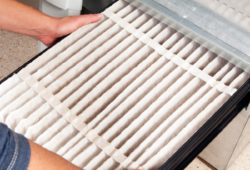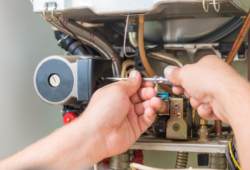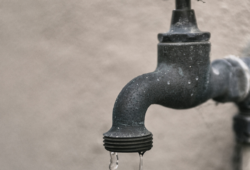9 Steps to Get Your Raleigh Home More Energy Efficient
Your heating and cooling systems can account for up to 70% of your home’s energy use. In a large Raleigh home, this could easily account for thousands of dollars per year. This does not have to be the cost of living in comfort — by maintaining an energy efficient home, you can potentially save hundreds of dollars per year. Here are nine things you can do to increase your heating and cooling systems’ performance on your road to a more energy efficient home.
1. Use shade and sun to your advantage
The sun is the largest source of energy on the planet. Use it to your advantage during the winter by ensuring that the blinds are open when a window is receiving sunlight. Do the opposite in the summer by keeping the blinds closed during direct sunlight. You can also help improve your air conditioner’s efficiency by shading the outdoor condenser unit with trees or bushes. With expert help, you can also position trees to shade your windows in the summer, but leave them exposed to sun in the winter.
2. Use a programmable thermostat
The often quoted rule is that if you increase your heating or cooling by one degree for eight hours per day, you increase your energy bill by 1%. Increasing the temperature by five degrees all day during the winter could mean an increase of 15%. Use a programmable thermostat to reduce your energy use while you’re at work and when you’re asleep. The temperature will return to a comfortable level before you return or wake up, and you won’t forget to conserve energy the next time you leave or go to bed.
3. Check your indoor air quality
Poor indoor air quality can also cause your energy use to rise. Many homes are only filtered by their HVAC system’s filter, so when the air feels unhealthy, you’ll naturally turn your HVAC system on to get fresher air. Consider a ventilation system or independent air cleaner instead — they use less energy, and you won’t feel the need to run the heating or cooling during periods of mild weather.
4. Control your humidity
Humidity levels play a big part in the “feels like” temperature quoted by the weatherman, and the same principle applies in your home. Dryer air feels colder. In the winter, outside air is naturally dry and your home’s humidity levels decrease. By increasing the humidity, you can turn the heat down a little without sacrificing comfort. In the summer, humidity rises and decreases your comfort. Instead of relying on your air conditioner to dehumidify the air, use a separate dehumidifier instead — they use less energy than an air conditioner and will also reduce the amount of time you’ll want to run your AC.
5. Keep your system clean
Over time dust and dirt build up on your heating and cooling coils. These create a layer of insulation that reduces the heat transferred into or out of your air. This forces your system to run longer to reach your desired temperature and increases the amount of energy it uses.
6. Check your filters
All of your home’s air pass through your air filters. Over time, the dust and dirt that they collect decreases the amount of air that is able to pass through them. This directly translates into a higher energy bill. When your air flow is reduced, your HVAC system is still using the same amount of energy, but putting out less heated or cooled air and therefore needing to work longer. In addition, restricted airflow can also wear out its parts sooner.
7. Check your ducts
Dirty ducts can also reduce your airflow and increase your energy bill. The bigger problem is when they leak. Over time, seals at connections fail or ducts are damaged by working or storing items in your attic. In rare cases, the original builder may forget to attach a section. These problems lead to heated or cooled air venting into your attic — this is no different than leaving your windows open while the HVAC system is running and can lead to energy loss of up to 30%.
8. Keep up with maintenance
Your HVAC system’s parts wear out with time. As with any mechanical system, they are most efficient when they are new. In addition, minor mechanical troubles can decrease your HVAC system’s performance and may often go unnoticed for some time. Each small issue can add a little to your energy bill and the costs could quickly add up. Have your system checked at least once a year to make sure it is operating at top efficiency.
9. Consider an upgrade
Environmental regulations and technological advancements have led to a huge increase in the energy efficiency of new HVAC systems. A new system today may be at least 30% more efficient than a new system ten years ago in addition to potential energy losses due to age. If your system was installed more than a decade ago, consider replacing it. The energy savings may be more than enough to pay for the installation cost.




